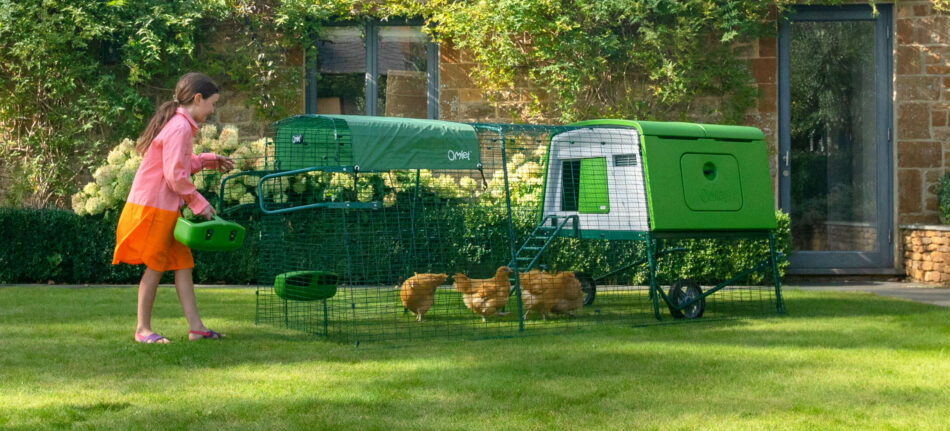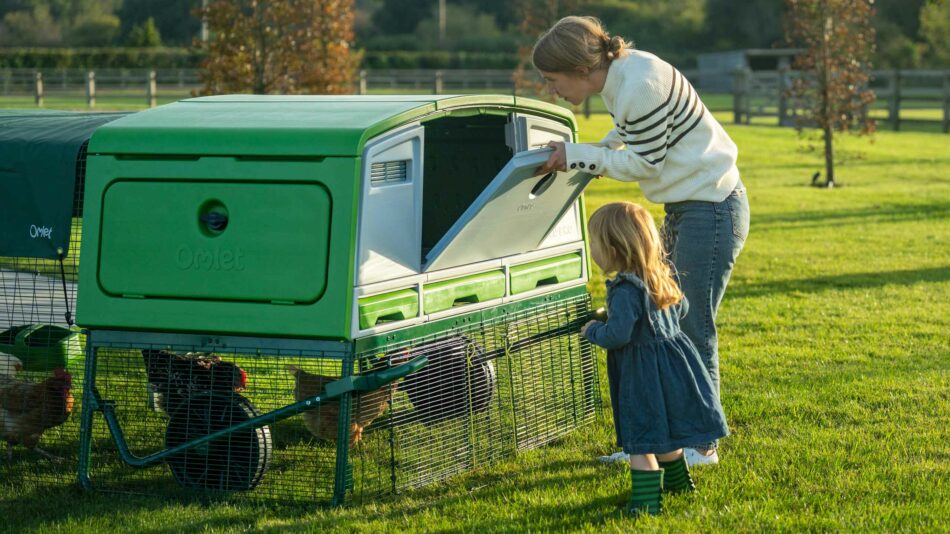10 things you should know before keeping chickens
Chickens are unique pets that bring their keepers a sense of peace and tranquility. Ask anyone who has chickens, and they’ll tell you that there’s something about watching chickens scratch the ground that instantly relaxes them. But there are 10 things you should know before keeping chickens. We’ll explore these important points to consider before bringing home a flock, and how to ensure success from the start.
10 things you should know before keeping chickens
Chickens aren’t just found in barnyards now. All across the world, you’ll find both urban and rural families adding chickens to their family. From backyards to wide open spaces, here are some helpful things to know when keeping chickens.
1. You’ll become obsessed with chickens
Most people aren’t entirely prepared for the amount of love they’ll have for their flock. What starts as a hobby will soon become an obsession – but a healthy one. More time spent outside, fresh eggs, and the companionship that chickens offer helps to reduce stress and create a healthier lifestyle. Just don’t be too surprised when you start shopping for chicken-themed clothes and decor, and researching all the fun things you can do with your chickens.
2. Some chickens can fly
Also not as much of a problem if you have a lot of space, but potentially problematic if you have neighbors. Some chickens are capable of scaling 6 foot fences and sailing straight into a neighboring yard. While chickens aren’t capable of sustained flight, a determined hen can certainly clear a fence when something piques their curiosity. To prevent flight, you can trim your chickens’ flight feathers, or choose breeds that can’t fly well. Silkies can’t fly due to the texture of their feathers, and large breeds like Brahmas or Orpingtons are too heavy to get far off of the ground.
3. You can’t have just one
Chickens are flock animals, and thrive in the company of others. A chicken kept alone is a lonely chicken, and will quickly become depressed. You’ll need to keep at least 2 chickens together, but ideally at least 3-4 in order for them to form a healthy chicken pecking order. This hierarchy is essential to the wellbeing of chickens, so keeping at least 3 chickens at a time is enough to satisfy this structure.
4. Pick breeds appropriate for your climate
Not all chickens are built for any climate. Ornamental breeds like Frizzles and Silkies are adorable to be sure, but they aren’t designed for extreme temperatures due to their unusual feathers. Breeds with large combs like Leghorns or Rhode Island Reds are more prone to frostbite in freezing temperatures and need to be watched closely in severe winter weather. Heavy breeds or those with small combs are usually not as heat tolerant, such as Wyandottes.
5. Even hens can make noise
This isn’t an issue for rural residents, but people living in neighborhoods need to be careful when selecting their chickens. Roosters are usually not permitted within the city limits, but chicken sounds that hens make can reach a disruptive level. Some chicken breeds are more prone to calling out after laying an egg for example, which can get the entire flock going. It’s also a good idea (and sometimes a requirement of your neighborhood) to get your neighbor’s consent before bringing hens home.
6. Check your local laws
Always check to make sure that your property isn’t subject to laws about keeping chickens before getting your heart set on them. Most cities and homeowners associations (HOAs) welcome chickens, but some may not. It may also depend on the zone your property is located in, or how big your property is. You may also be limited on the number of chickens you keep, and whether or not roosters are allowed.
7. Predators pose a problem
No matter where you live, there will be chicken predators that will pose a threat to your flock. In cities it may be raccoons, snakes, rats, or hawks. Outside of urban settings can include all of these in addition to larger predators like coyotes, bobcats, and even bears. Keeping your chickens in a predator-resistant chicken coop is key to keeping them safe from harm.
8. Be careful with other household pets
Similar to wild predators, your other household pets can also pose a threat to your flock. Keeping chickens with other pets can be done, but precautions must be in place. As prey animals, chickens startle easily and can incite a prey drive in dogs and cats.
Always introduce your dogs and cats to your flock slowly, and through the safety of a secure chicken run. With a slow and steady approach, you’ll be able to evaluate the level of interest your other pets have in your flock.
9. They’re excellent pest control
When able to patrol the yard, or within a specified area of chicken fencing, your flock will exterminate insects from your property. Chickens will eat anything from grasshoppers and worms to scorpions and spiders – making your yard a much more enjoyable place for your family. When allowed near gardens, chickens can provide excellent assistance in keeping your plants bug-free.
10. Take caring for them seriously
Chickens are fairly self-sufficient – they stick to their routines, forage for their food, and can visit the feeder for their pellets when needed instead of gorging themselves all at once. It may be tempting to leave them to their own devices, but just like any pet, they are reliant on their humans in order to feel their best. Incorporate caring for your chickens into your daily routine, and get your family involved. And, when you go out of town for more than an overnight trip, be sure to find a chicken sitter to care for them while you’re gone.
Omlet and your flock
With our ingeniously designed chicken products, you’ll be able to keep chickens with confidence. Our chicken coops, chicken runs, and chicken toys and accessories make your experience as unique as the flock you keep. Preparing yourself by knowing what to expect before keeping chickens, along with our beginner-friendly products will ensure success from the start and ongoing enjoyment with your flock for years to come.
This entry was posted in Chickens


